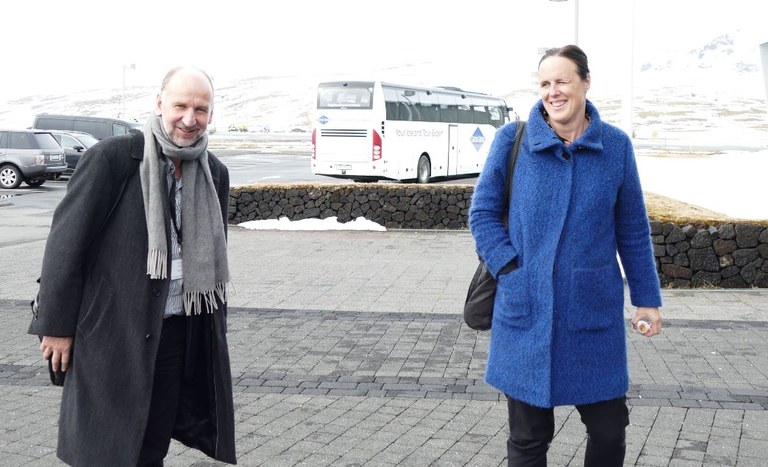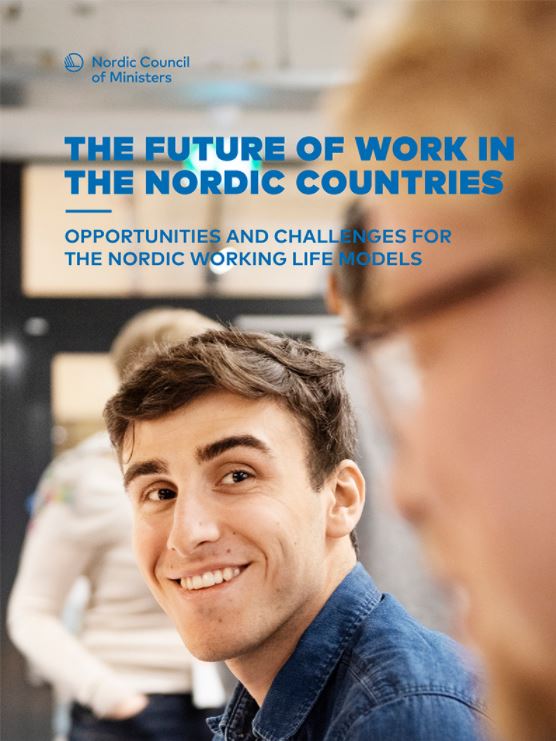Nordic model well suited for future of work challenges
Nordic labour ministers met digitally on 2 June to discuss the final report from the Nordic research project on the future of work. It warns of challenges to the Nordic model, but also concludes it is the best tool in the fight against an unequal labour market.
Future of Work is the largest research programme on the labour market ever financed by the Nordic Council of Ministers. Since 2017, 30 researchers have studied megatrends like digitalisation, demography, globalisation and climate change and their potential effects on the Nordic labour markets. The result has been summarised in four points:
- There might be labour shortages
- There might be job shortages
- There might be skills gaps
- There might be a more segregated working life
A couple of these points look to be contradictory. How can you have labour shortages and jobs shortages? The answer lies in point number three – many of the new jobs that are being created demand skills which job seekers do not have, while there are fewer jobs for low-skilled workers.
Will this in turn lead to a more unfair labour market where the best-paid workers get paid even more while those on low pay fall even further behind?
“Creating more productive service jobs in new companies like Spotify will not help those at the back of the queue,” as Kristin Alsos, head of research at Fafo, put it.
 The Future of Work research journey has seen many presentations. This is Jon Erik Dølvik and Kristin Alsos in Iceland in 2019 preparing to deliver one of them. Photo: Björn Lindahl
The Future of Work research journey has seen many presentations. This is Jon Erik Dølvik and Kristin Alsos in Iceland in 2019 preparing to deliver one of them. Photo: Björn Lindahl
She has coordinated the Nordic researchers’ work together with Jon Erik Dølvik. During their process, some myths have been busted – new technology will not lead to mass unemployment for instance. This did not happen with the introduction of computers, and it will not happen as a result of digitalisation or artificial intelligence, AI. Even if robots are taking over certain tasks like physical ones in factories or via software, new needs arise parallel to this.
“As more services in society are digitalised, we must make sure everyone can use them. They also need to be secure so that they cannot be hacked,” the ministers pointed out. There is currently a serious lack of cybersecurity experts globally.
What should we work with on a Nordic level?
The meeting also included representatives from the social partners and institutions like the Nordic Council of Ministers, NCM.
“Which solutions to these challenges should we focus on working with on a Nordic level?” asked the NCM Secretary General Paula Lehtomäki.
Jon Erik Dølvik believed some of the cross-border issues would naturally belong on a Nordic level.
“How to secure a Nordic agreement on the legal position of platform companies when it comes to labour law is another issue, along with the fight against tax competition. How to tax Big Tech is a crucial issue if you want to raise enough taxes to cover public expenditure,” said Dølvik.
What about Corona?
The researchers were also asked how the Corona pandemic is affecting the labour market and the Nordic region.
“We risk seeing a slowing down of green change since investments in green technology might fall due to an unfavourable economic situation and other challenges that have been amplified,” said Kristin Alsos.
Although the researchers were not worried that new technology would lead to mass unemployment, the research does show that economic crises can have long-term consequences. Youth unemployment will probably rise in the coming years.
Yet they underlined that political decisions will be key to how high unemployment will be in future.
A lot of support from employers
“One of the things that surprised us the most was that the Nordic model with its tripartite cooperation and a high level of trust between the social partners retains so much support among employers,” said Jon Erik Dølvik.
“Perhaps the question can be summed up like this – will the Nordic model be changed by giants like Amazon taking ever greater market shares, or will Amazon have to adapt to the Nordic model,” said Kristin Alsos.
The Nordic Labour Journal has been covering the entire process of the Future of Work research. Read all the articles here:
- Future jobs
-
in the Nordics should be green, will be skills-heavy, and must be able to deal with competition from both robots and low-wage countries. The new jobs should also be the kinds that we enjoy (above).

 Follow us on Facebook
Follow us on Facebook
